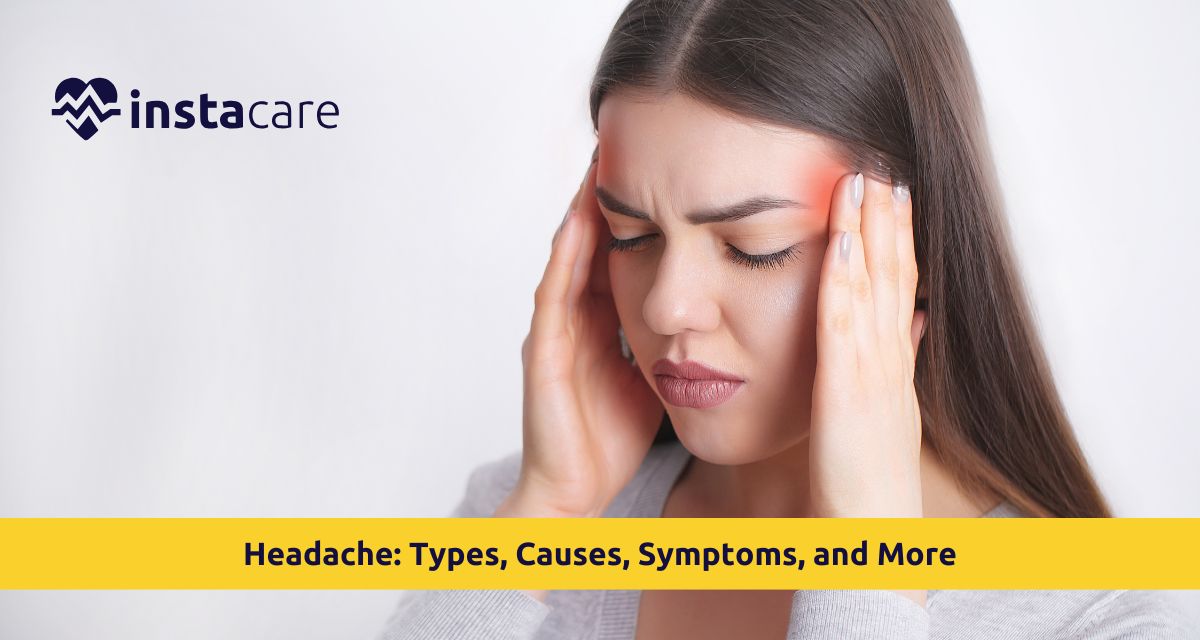Headaches are an extremely common symptom of good health that individuals of all ages and lifestyles complain about. For some, the headache is just an every once in a while occurrence annoyance, but for others, it is a frequent and chronic affliction. Headaches accumulate day by day, but not all headaches are the same intensity. They can vary in intensity, duration, causation, and effect on your quality of life.
During this discussion, we have to define various types of headache, establish why people experience headache, understand the symptom of headache, and traditional and natural headache remedy. No matter whether you have a mild tension headache or vile migraine, identifying the cause is the most crucial aspect of headache management.
What is a Headache?
Headache is a thudding headache of the neck or the head. The reason here is that there are no pain receptors in the brain, there are some covering structures like the nerves, blood vessels, and the muscles of the head and neck that will cause pain. A headache is either headache once or chronic and it lasts from a few minutes to many days.
Types of Headaches
Statistics on the type of headache can also be used to decide what type of headache treatment must be used. The most common ones are:
Tension Headache
Tension headache is the most common of the major headaches. It is of moderate to mild severity and is characterized as a persistent band or sensation of pressure over the forehead, temples, or back of the neck.
Features:
- Aching, dull headache
- Pressure or tightness over the forehead or sides
- Tight scalp or shoulder muscles
- Tension, anxiety, posture, and insomnia are frequent precipitating factors.
Migraine Headache
Migraine headache are intense, throbbing headaches of hour or day duration. They often happen on one side of the head and are also followed by some feature of nausea, vomiting, or sensitivity to light and sound.
They can be described as:
- Throbbing or pulsating headache
- Headache and nausea
- Vision change or aura
- Fatigue and irritability
Migraines are induced by hormonal change, food intolerance, stress, insomnia, and weather change.
Cluster Headache
Cluster headaches are the most disabling of all the headaches. They appear in clusters or "clusters" and usually at the same time of day or evening, and recur for weeks or months.
Symptoms:
- Sudden, severe pain around one eye
- Redness, tearing, or swelling of involved eye
- Runny nose or stuffiness
- Restlessness or agitation
Cluster headache is uncommon but highly disruptive.
Sinus Headache
Sinus headache is when sinuses are inflamed because of infection or allergy. Eyes, forehead, and cheeks usually have pain.
Symptoms used alongside it:
- Nasal congestion
- Face pressure by the head
- Thick nasal mucus
- Low-grade fever in some of them
They are also confused to be migraines, but sinus headaches are normally followed by sinus infection.
Chronic Headache
Chronic is defined as headache that occurs more than 15 days per month during a period of three months. It may be any of the above but not recurrent.
Chronic headache may significantly affect work or activity, mood, and daily functioning. Some physician care is warranted.
Common Causes of Headaches
There are a multitude of physical, emotional, and environmental causes of headache. Determining what a headache is caused by is the greatest challenge to effective treatment.
Some of the most frequent abusers are:
- Stress: Tension headache is a most frequent individual cause of emotional tension.
- Dehydration: Dehydration alone will cause a headache behind eyes.
- Poor Posture: Forward, head-forward sitting posture will tend to over-stress muscles in the shoulders and neck.
- Eye strain: Not looking at the screen may lead to dizziness or headache and eyeache behind.
- Sleep disturbances: Insomnia or oversleeping may be a underlying cause.
- Hormonal fluctuation: Normal fluctuation in hormonal levels in women is a migraine cause.
- Diet: Caffeine, alcohol, cheese, and processed foods are all culprits.
- Environmental triggers: Weather patterns, light, or pungent odors can bring on a migraine headache.
- Medical diseases: Infection, high blood pressure, or head injury may be the underlying cause of secondary headaches.
Headache Symptoms to Watch Out For
Headache symptoms and signs depend on the type of headache and cause. Your treatment and diagnosis will depend on your symptoms.
Some typical symptoms are:
- Bleeding, throbbing, or stinging pain
- Pressure or tension throughout the head
- Pounding, usually on one side (characteristic migraine symptom)
- Nausea and vomiting with headache
- Headache located in sinus region or back of eyes
- Sound and light sensitivity
- Change in vision or aura
- Headache and dizziness
Although headaches are not typically dangerous, see a physician if your headache is:
- Sudden and severe (typically a "thunderclap")
- With confusion, slurred speech, or loss of ability to speak clearly
- With fever, stiff neck, or convulsions
Treatment of Headache
There are several effective treatments for and management of headaches that vary depending on their severity and type.
Over-the-Counter Medication
Ibuprofen, aspirin, or acetaminophen relieve tension headache and low-level migraine.
Nasal decongestants eliminate sinus headache.
Medication prescribed
Triptans or ergotamines if migrainous headache is moderate or severe.
Beta-blockers, antidepressants, or anti-seizure medications can be prescribed as a preventive for frequent headaches.
Headache Home Remedies
home remedies are preferred by all since they would not have to take medicines at times.
Some of them are:
- Hydration: Drink lots of water on a regular basis so that dehydration headache does not arise.
- Cold/warm compresses: Use on forehead or neck depending on type of headache.
- Essential oils: Calming essential oils are peppermint and lavender oil.
- Herbal teas: Ginger, turmeric tea, and chamomile tea are anti-inflammatory ones.
- Yoga and meditation: These minimize headache due to stress.
Headache Prevention Tips
Prevention of headache is the prevention and avoidance of personal precipitants. The following are some tested tips:
- Adequate fluid intake
- Sleep at regular times (7–8 hours in the evening)
- Eat food at regular times
- Do not skip meals and excessive use of caffeine
- Relaxation techniques to minimise stress
- Regular physical activity
- Use a headache diary for keeping track of patterns and precipitants
These preventive strategies over time can decrease the frequency and severity of headaches.
Conclusion
Headaches are a complex but manageable disorder. If one is having a tension headache because of working long hours or fighting a migraine headache that devastates one's week, understanding your symptoms and understanding the causes of headaches can result in successful management and relief. With the right headache relief, from medication, natural headache relief, and lifestyle change, you'll be able to keep your headaches from dominating your life. Take back control, don't let the pain dominate you.
Please book an appointment with the
best Neurologist in Lahore, Karachi, Islamabad, and all major cities of Pakistan through
InstaCare, or call our helpline at 03171777509 to find a verified doctor for your disease.






